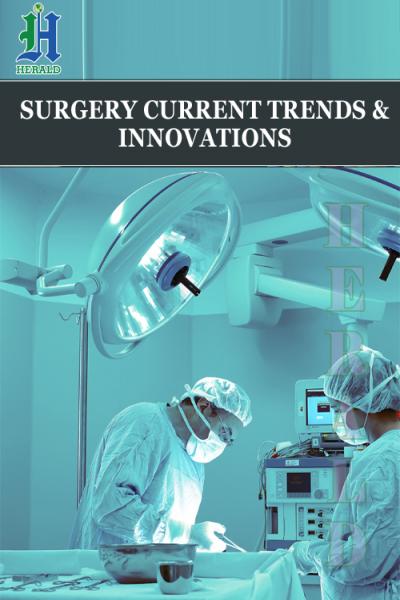
Colorectal Surgery and the acquired immune deficiency syndrome (AIDS)
*Corresponding Author(s):
Elroy Patrick WeledjiDepartment Of Surgery, Faculty Of Health Sciences, University Of Buea, Cameroon
Tel:237699922144,
Email:elroypat@yahoo.co.uk
Commentary
The impact of the Human Immunodeficiency Virus (HIV) infection in colorectal surgical practice include the undoubted risk of surgeon’s exposure, the atypical conditions that may be encountered and the outcome and long-term benefit of the surgical treatment on the background of the fact that Highly Active Antiretroviral Therapy (HAART)- compliant patients are living longer, but a progression of AIDS in the HAART-naïve patients. Thus, the author questions whether colorectal surgical procedures can be safe and effective measures in HIV/ AIDS patients and if surgical outcome is worthy of the surgeon’s ethical responsibility to treat. Literature search on the Medline (PubMed) database, Cochrane library, science citation index, relevant chapters in specialized texts on original published studies on the impact of HIV/AIDS on colorectal surgery and, the author’s colorectal work on HIV/AIDS patients in the sub-Saharan country, Cameroon, W/ Africa resulted in the following observations.[1] HIV/ AIDS patients are not a homogenous group. Clinical AIDS, lower CD4 counts and poor performance status are associated with poor surgical outcome. Anorectal complaints (40%) and abdominal pain (20%) are common.[2] The commonest disease processes- CMV colitis, B-cell lymphoma, acute appendicitis (CMV/ lymphoma-associated) and atypical mycobacterium avium intracellular (MAI) are associated with high level of immunosuppression and poor outcome.[3] Less than 1% require emergency laparotomy. Appendicectomy and colectomy are the commonest abdominal operations but emergency subtotal colectomy and ileostomy for toxic megacolon carries a high mortality. HAART improves resistance to infection, nutritional status and ability to withstand surgery but has not impacted on the anorectal disorders. Surgical interventions for life-threatening correctable disease is acceptable, but the magnitude of the surgery should be scaled down to a safe level. Minimally invasive surgery benefits both the patient and surgeon as the risk of exposure is made smaller. Postponing elective operations with the aim of starting the patient on antiretroviral medication should be encouraged. With careful patient selection, emergency laparotomy confers worthwhile palliation.[4] Symptomatic improvement of anorectal pathology in AIDS makes delayed wound healing an acceptable complication. The knowledge of anorectal sexually transmitted diseases is important in proctology practice. In conclusion, the concensus is that surgical intervention is obligatory in life-threatening surgical correctable disease but alternatives to surgery can be contemplated for diagnosis, prophylaxis, or palliation. A close liason between the HIV/AIDS physician and the surgeon will decrease negative laparotomies, unnecessary diagnostic laparoscopy and exclude pre-terminal cases.[5].
Video
References
- Weledji EP, Nsagha D, Chichom A, Enoworock G (2015) Gastrointestinal surgery and the acquired immune deficiency syndrome Ann Med Surg (Lond) 4: 36-40.
- Smit S (2010) Guidelines for surgery in the HIV patients. Continuing medical education 28.
- Cochrane JPS, Wastell C (1992) In: The impact of HIV on surgical practice. Studies in Surgery (1) Cochrane JPS, Wastell C, editors Royal College of Surgeons of England.
- Weledji EP (2013) Human immunodeficiency virus and the anorectum. Alex J Med 49: 163-167.
- Irowa O (2007) HIV/ AIDS, surgical complications and challenges, the Nigerian experience. Benin J Postgrad Med 9: 55-57.
Citation: Weledji EP (2023) Colorectal Surgery and the acquired immune deficiency syndrome (AIDS). J Surg Curr Trend Innov 7: 060.
Copyright: © 2023 Elroy Patrick Weledji, et al. This is an open-access article distributed under the terms of the Creative Commons Attribution License, which permits unrestricted use, distribution, and reproduction in any medium, provided the original author and source are credited.

